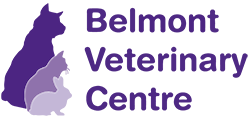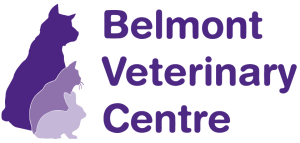Surgery
From routine procedures like speys and neuters to those unexpected moments requiring soft tissue surgery, your pet is in good hands at Belmont Vet Centre.
We have a fully equipped, modern operating suite in our hospital where our expert team carry out major surgical procedures. BVC will ensure your pet receives the highest quality care and yes, plenty of cuddles too!
Rest easy knowing your furry pals are in the best hands possible and getting the top-quality care they deserve.
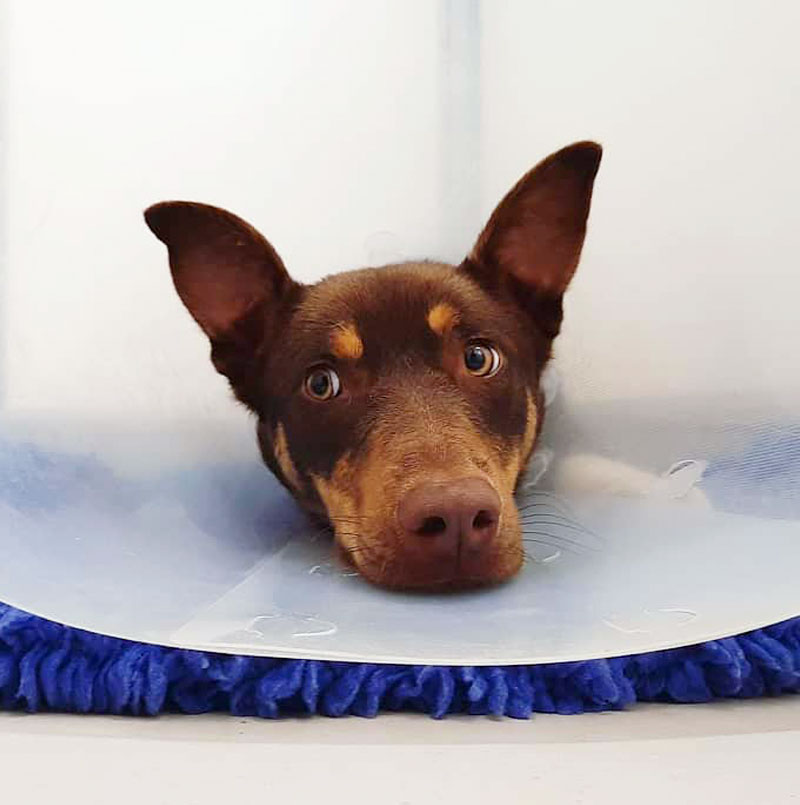
Types of Surgery
- Male Desexing (Castrations)
- Female Desexing (Speys)
- Skin biopsies
- Surgical tumour and lump removals
- Abscess surgery
- Eye and eyelid surgery
- Ear surgery
- Hernia repair
- Airway obstruction treatment (including Brachycephalic Obstructive Airway Syndrome (BOAS) surgery)
- Abdominal or chest surgery
- Gastrointestinal surgery
- Fractures and ligament repairs both simple and complex.
- Conventional plates, Linear, and hybrid external fixation
- Correction of angular limb deformities
- Cranial Cruciate ligament rupture “ACL.”
- Tibial-plateau-leveling osteotomy (TPLO)
- Extracapsular stabilisation (lateral fabella suture or De Angelis repair)
- Patella luxation
- Distal femoral wedge ostectomy for distal femoral bowing
- Femoral head and neck removal
- Juvenile pubic symphysiodesis – prevents Hip Dysplasia.
Orthopaedic surgery performed at Belmont Vet Centre is usually either Bone Fractures, or Joint/Ligament Injury surgery and may be as a result of a traumatic accident (fall, hit by car, foot in pothole when running), but could also include correction of congenital and developmental limb deformities or removal of cancers involving bones.
Fracture investigation and repair in animals involves stabilising the patient, diagnosing the extent of the injuries, and fixation of broken bones to allow them to heal. Stabilisation means dealing with any life-threatening problems such as damaged internal organs, and shock. Diagnostic radiographs (X-rays) are taken to determine the extent of and repair type for any fractures. Some repair options are available and are selected depending on the type of fracture, sometimes in combination. They include: splinting, cerclage wiring around the bone, screws, plates, pinning and external skeletal fixation (external frame).
The surgical procedure for other orthopaedic injuries (such as anterior cruciate ligament rupture) is similar, with the diagnosis being made at a consultation. And then confirmed with X-rays and examination under anaesthetic. Repair consists of stabilising the joint if unstable, and removing any torn, or damaged tissue likely to cause future problems.
Pre-Surgery Patient Information
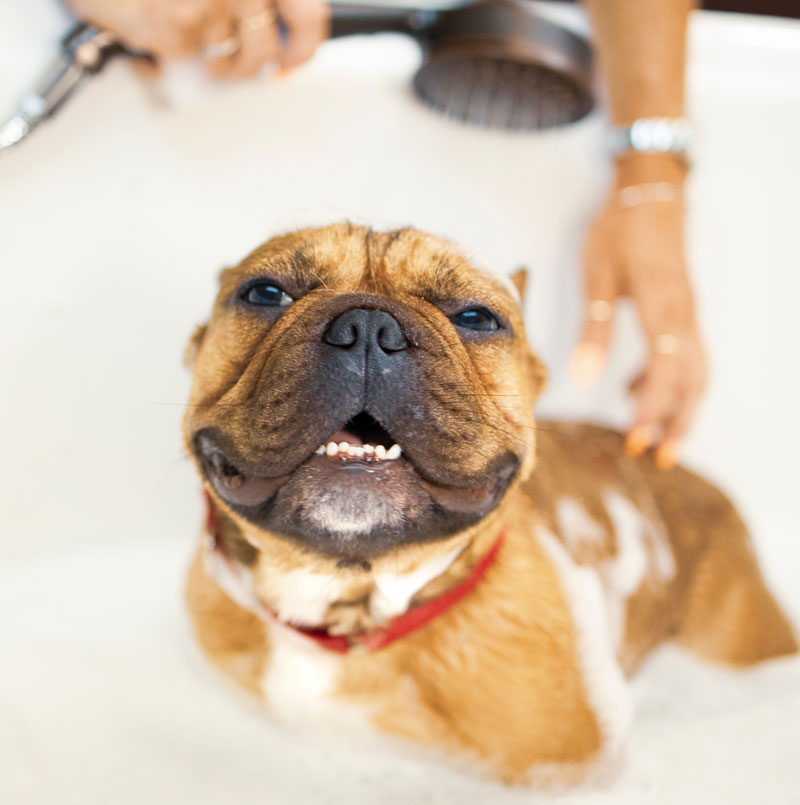
Prior to Admission
Please remove your pet’s food from 10pm the night before surgery, unless directed otherwise by your pet’s veterinarian. It is not necessary for pocket pets such as rabbits, guinea pigs, mice, rats etc, to fast before surgery.
There is no need to remove your pets water bowl prior to admission.
Please continue with any regular medications as normal. Please seek advice from your veterinarian if you are unsure.
We highly recommend that you bathe your dog on the day prior to their surgery, in preparation for their procedure and to further reduce the risk of infection. You will not be able to bathe your pet for 2 weeks after surgery, to allow time for their surgical site to heal and prevent infection.
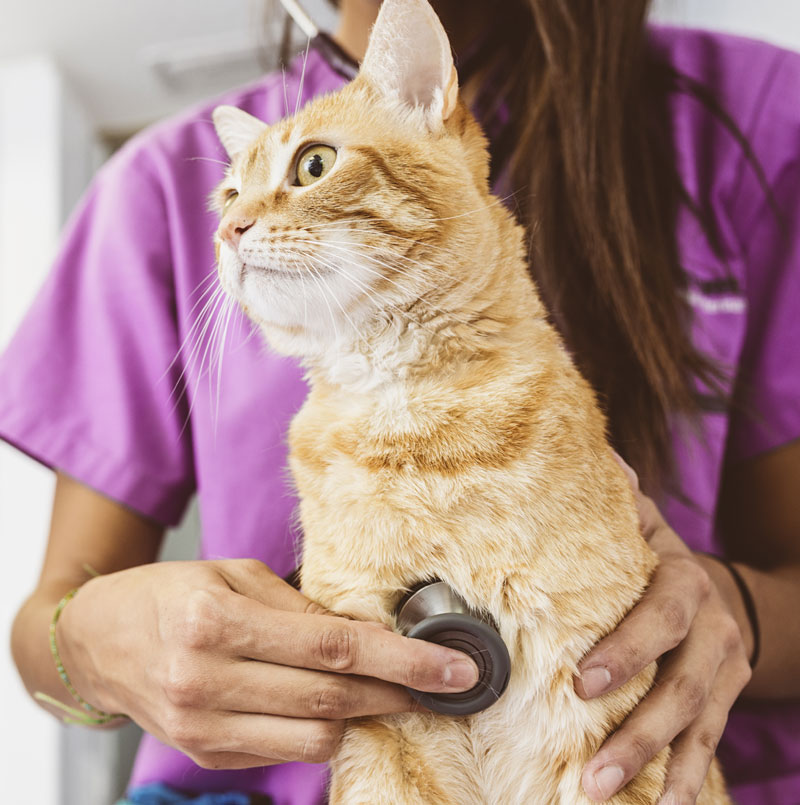
Admission Appointment
Please bring your pet to the clinic at the admission time given to you at the time of booking. The vet nurse will confirm the procedure with you, go through the ‘Hospital Admission and Consent form’ with you and answer any questions you may have.
We will double check your contact information as it is very important that we are able to contact you throughout the day to discuss your pet. This could be to discuss blood test results, report unexpected findings, get permission to change the treatment plan because of further examination under general anaesthetic (e.g., for dental procedures), and in rare cases, to discuss emergencies.
The admission appointment may take around 10-15 minutes.
Once you leave, your pet will be taken to one of the hospital wards with comfortable bedding and calming pheromones, to settle in before their pre-op checks.
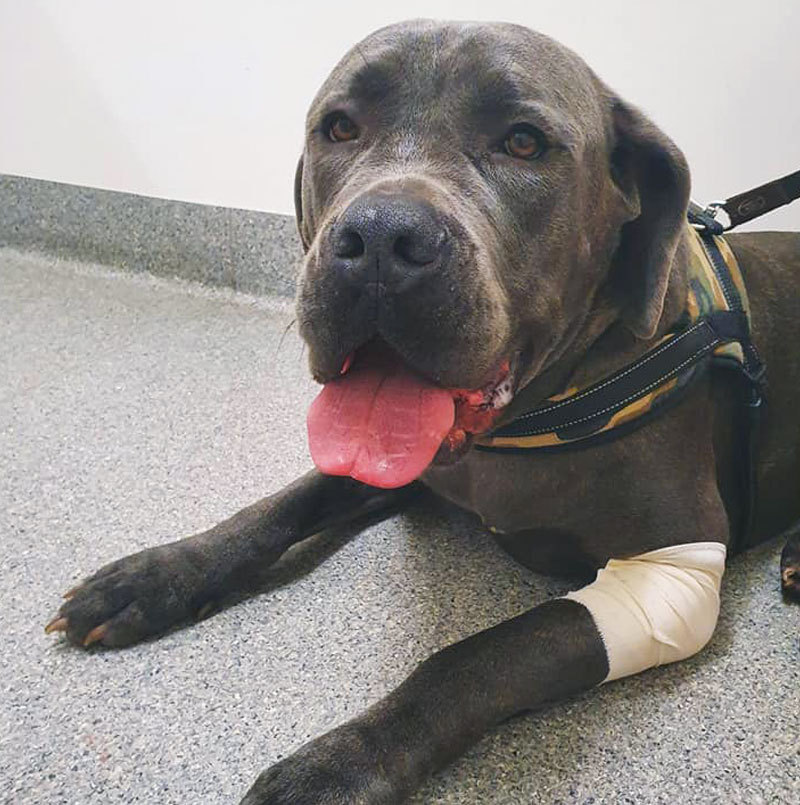
Pre-op Care
Prior to surgery all our patients have pre anaesthetic check-up.
As part of our standard practice, most inpatients receive a basic pre-anesthetic blood test (PCV/VT) at no extra charge. This test helps evaluate the patient’s overall health and suitability for anaesthesia.
In addition to the standard blood test, we offer the option of a more comprehensive blood test (Total Health Profile) for an additional fee. This advanced test provides a detailed assessment of the patient’s health status, allowing us to identify any potential concerns before proceeding with surgery. The comprehensive information obtained from these tests is invaluable in guiding treatment decisions and ensuring the highest level of care for your pet. All tests are performed using our state-of-the-art, in-house pathology machines. This helps us to check that your pet’s organs are fit and healthy for anaesthesia, further enhancing their safety during surgical procedures.
A catheter will be placed on your pet’s forearm to allow us to have intravenous access for medications, fluid therapy and emergency access if needed. Pain relief and antibiotics will be prescribed when required.
Intravenous fluids are used to help maintain adequate blood pressure and kidney function throughout the procedure and to prevent dehydration and provide a smoother recovery for your pet.
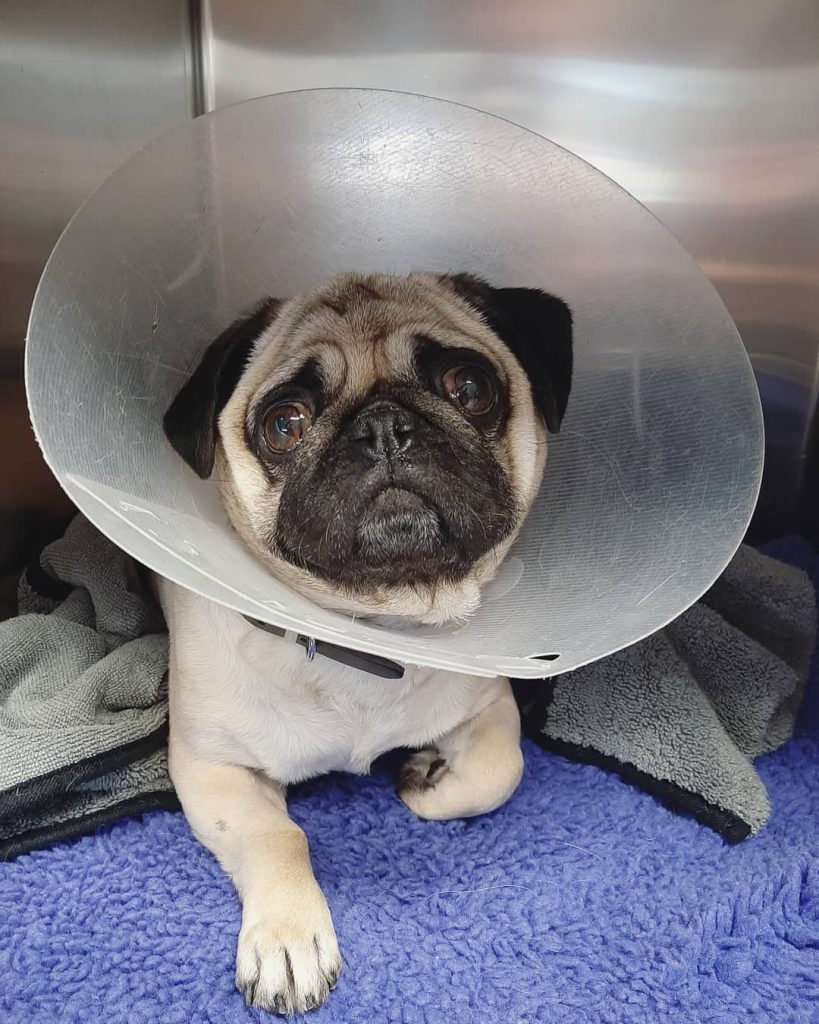
Surgery
Your pet will be intubated during their procedure, via an endo tracheal tube down the windpipe, so we can maintain oxygen levels and deliver the anaesthetic agent.
During your pet’s anaesthesia, a veterinary nurse will work closely with the veterinarian by monitoring their oxygen rate, carbon dioxide levels, respiratory rate, heart rate, temperature, mucous membranes, capillary refill time and blood pressure throughout the anaesthetic.
After surgery, your pet will be taken to the hospital to recover from anaesthetic with the surgical nurse, they will be closely monitored until they are awake.
Your pet will be given an additional pain relief injection that will help with pain relief for a further 24 hours.
We have calming pheromone diffusers running in our hospital wards. This provides comfort and security to all dogs and cats.
Our veterinary nurses will continue to keep an eye on them throughout their stay and take them for walks (dogs only!) and will attend to their needs until it is home time.
After surgery, your pet will be taken to the hospital to recover from anaesthetic with the surgical nurse, they will be closely monitored until they are awake.
Your pet will be given an additional pain relief injection that will help with pain relief for a further 24 hours.
We have calming pheromone diffusers running in our hospital wards. This provides comfort and security to all dogs and cats.
Our veterinary nurses will continue to keep an eye on them throughout their stay and take them for walks (dogs only!) and will attend to their needs until it is home time.
When you arrive to collect your pet, please present to reception to arrange payment of the outstanding amount. Belmont Vet Centre require payments in full upon completion of treatment.
We accept Eftpos, Cash and VetPay.
Visit www.vetpay.com.au for more information about VetPay, fortnightly payment plans are available if you are interested.
We also accept Trupanion Pet Insurance which can approve and pay claims directly to us within 5 minutes, meaning you can pay the gap only. Find out more here.
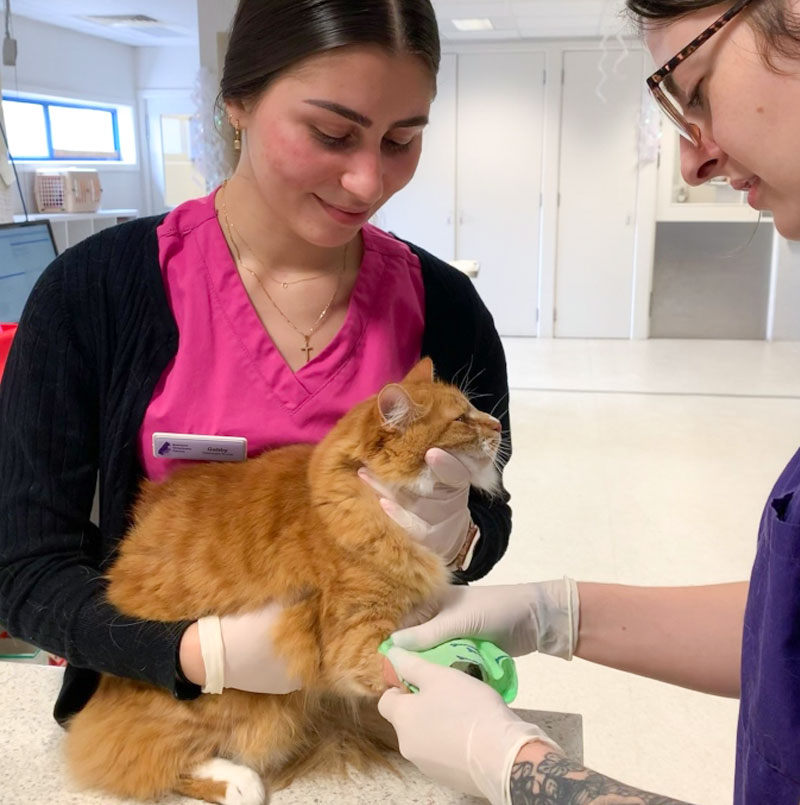
Post Surgery Review
Often post-operative appointments will be booked at the time of discharge for your pet, this allows us to check in on your pet’s recovery. Generally, in about 10-14 days (depending on the procedure). This appointment is a complimentary post-op check with a nurse.
If you have any further questions or concerns, please do not hesitate to contact us on 03 5241 2388.
Thank you for choosing us to be a part of your pet’s comprehensive health care.
Is your pet in need of surgery?
To book an appointment or if you have any questions – please do not hesitate to contact us.
